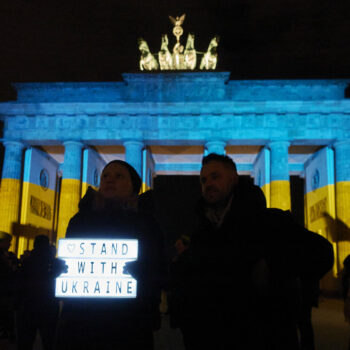E3G hosted a thinking event in early September in London and Washington to discuss systematic risk management approaches to climate change. This was the first of a series of workshops with security and climate experts from the U.S. and Europe to explore how to construct a systematic risk management approach to climate change.
The aim of these series is to produce an outline for a paper on risk management and a process to turn this into a published document in advance of Copenhagen.
The motivation for holding this session came from the confluence of E3G’s thinking on climate change and security, low carbon innovation, the Copenhagen negotiations and the discussions around real world decarbonistion paths we have been deeply involved in Europe and China.
In all these discussions we have been struck by the reluctance of policy makers and processes to fully embrace the ranges of uncertainty around climate change science, impacts and policy delivery and develop clear risk management approaches in response.
In the worst case policy is being constructed based on average scenarios for climate risks and impacts and highly optimistic scenarios for policy (e.g. cessation of deforestation by 2030). This approach risks significant failure of climate policies covering mitigation and adaptation to achieve expected outcomes, and consequently could reduce political and public support for strengthening climate policy as an air of fatalism over our ability to prevent climate change takes hold.
The risks of not planning for the worst case scenario are well recognised in other areas; most notably national security. An intelligent analyst would be dismissed if they failed to include a 9/11 style terrorist “spectacular” including nuclear weapons in a scenario assessment alongside more probable types of bombing attacks, but this is a good analogy of how climate policy is generally conducted. There has been a debate about how – or even whether – worst case scientific scenarios should be communicated to the general public, but our concern in this process is with elite policy making audiences.
The workshop was a pioneering dialogue on the issue in an integrated manner looking at:
ranges of uncertainty in the climate science
ranges of uncertainty in climate impacts
capacity for risk mitigation through adaptation and uncertainties in adaptation effectiveness and unforeseen impacts
risks in the impact and delivery of mitigation response measures
discussion of risk management approaches to manage critical risk areas and worst case scenarios e.g. how to set of emissions pathways/targets; resilient adaptation strategies; monitoring the onset of extreme climate impacts; greater investment in low carbon R&D; anticipatory investment in grid technology; preparing for “crash programmes” in low carbon energy deployment and deployment of geo-engineering.
E3G will be linking this discussion directly to its work on climate security – primarily in the US – where we will be working with the security community to develop a shared approach to “What the US security community needs from Copenhagen” with the aim of influencing the Senate and US Administration to strengthen critical areas of the Copenhagen agreement and domestic legislation. The risk management paper will provide part of the analytical basis for this work as it will mirror classic strategic planning approaches used by the military and other security actors.
Participants at the London event included representatives from IEA, LSE, Chatham House, RAND Europe, Bradford University and Scottish Government.


